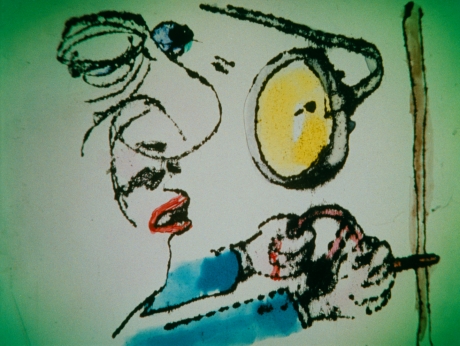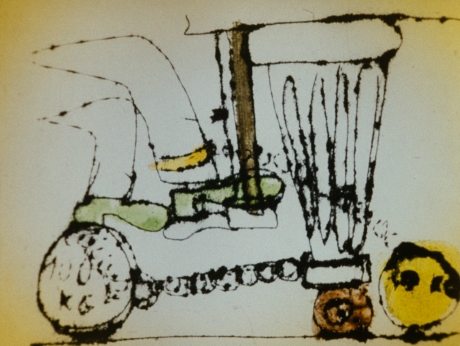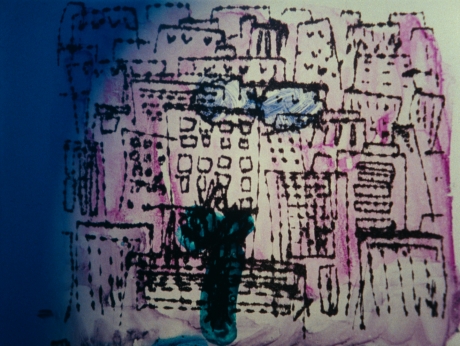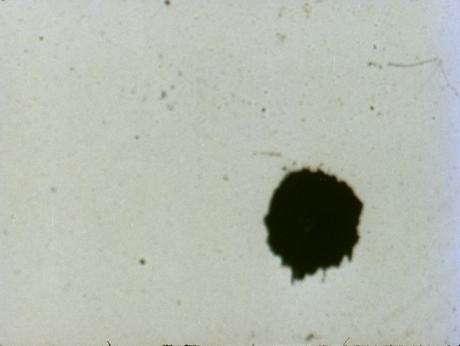
 overview
overview

 storyline
storyline
The sun is shining, a heart is beating. A director's look-alike is seated on a chair. All of a sudden the sun transforms into a skull, Death with a scythe appears, the man bristles, his eyes bulge, his heartbeat accelerates, he loses his glasses... A stretcher, nurses, ambulance sirens, OR, complex resuscitation procedures. A continuous line on the electrocardiogram. The alarm goes off... Cut! A black screen with a blurry white spot. It slowly becomes bigger and clearer. The man or, more specifically, the man's soul, gets up from his bed and runs off towards a dark tunnel with glittering light at its end, only to realize that it is not a single, but a two-point source light that is coming from a car, approaching him head-on with his good, old friend - Death - seated behind the steering wheel.

 comment
comment



















The above description is Julian Józef Antonisz’s vision of afterlife, one which had originally been envisioned by Jerzy Bossak, a prominent Polish documentary director, pedagogue and an avowed appraiser of both the Cracow artist’s non-camera output and his humor. It is not only the visual side which makes the ‘Light in the Tunnel’ so impressive, but also the diligently crafted soundtrack, a specific collage composed of varying, yet consistent sounds: poignant music (the work of the director himself), field recordings, voice samples (medical verbal commands given in English) or even a popular Russian ballad.
The movie won Antonisz the International FICC Federation of Film Societies Award (Fédération Internationale des Ciné-Clubs) at the 32nd International Short Movie Festival held in Oberhausen in 1986. What was particularly appreciated by the jury was the film’s integration of the audio-visual. The interesting thing is that the audience was presented with a silent copy of the movie, while the artist himself performed live on an out of tune pianoforte in front of the screen, but also enriching the performance with his own, untintelligible sounds..
‘Light in the Tunnel’ was one of Antonisz's last works, preceding only the two ‘Polish Non-Camera Newsreel’ episodes (No. 11 and 12). Despite the somewhat perverse humor permeating its plot, the image stands out as a moving, poignantly atmospheric masterpiece. To quote the words of the protagonist of the film ‘A Few Practical Ways To Prolong One’s Life’ (1974) : ‘For what unmistakably proves that life is a movie is that when passes out from drinking vodka and lies on the floor, he later calls it a blackout’. The film also contains more serious reasoning… Antonisz did in fact consider life and film to be equal. ‘The pulsating realm of non-camera is my only remedy for the parallel, paranoid reality’ - he told me during our last interview. His own film ended on 31st January 1987, a year after he released ‘A Light in the Tunnel’. Its closing scene, shot in a resort in Lubień south of Myślenice, witnesses Antonisz frozen over his own invention, a pantograph-animograph, on which he had been drawing frames to be released as the ‘Polish Non-Camera Newsreel's 13th episode. Jerzy Armata